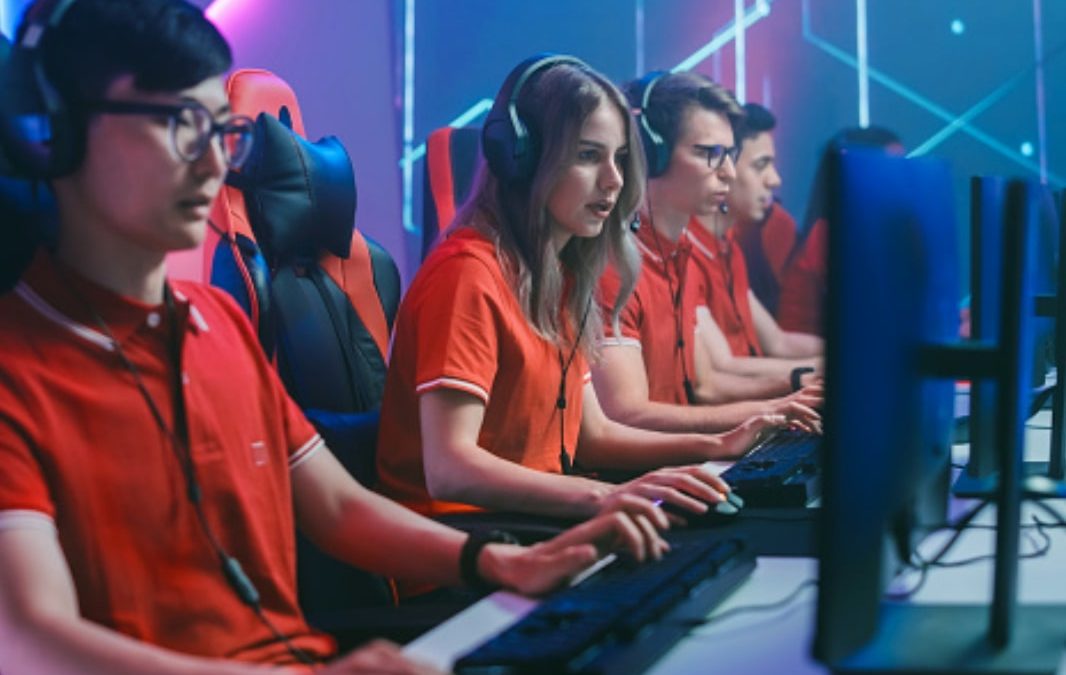In recent years, eSports have become a multibillion-dollar industry attracting international fame and numerous fans. Professional gamers and rising stars team up online to play virtual games in front of hundreds, thousands, or even millions of spectators. Though often live events, these games and tournaments are also streamed or recorded. But with the streaming of eSport events comes opportunities for anonymous, gender-based harassment.
Online bullying has been prevalent since the advent of online communities and forums. Platforms such as Twitter and Facebook must often deal with claims of online harassment. But perhaps one of the most notorious places for gender-based online bullying is the world of online gaming. Often accredited as the domain of men, online gaming spaces can be hostile to women, minorities, and other marginalized groups. This toxicity manifests in online harassment, name-calling, and an overwhelming disparity in pay and exposure.
eSports, in particular, are no stranger to the toxicity of online harassment. According to a 2019 report by the Anti-Defamation League, 53% of gamers have reported being harassed online due to their gender, race, ethnicity, religion, gender identity, or sexual orientation. ESports is often far from a safe haven for women–especially women of color or women in the LGBTQIA+ community.
Why Harassment in Online Spaces Matters Offline
The uncomfortable truth of online gender inequities is these inequities do not exist in a vacuum, nor do they exist solely as online-specific problems. It may seem easy to dismiss an isolated incident of discomfort experienced in an online space, but those isolated incidents can eventually add to looming, real-world problems.
Perhaps the most famous example of the consequences of gender-based online harassment is Gamergate. Coined circa 2014 and 2015, GamerGate is a visceral reaction to the increasing presence of feminist thought in gaming, a space that is often considered male-dominated. Proponents of GamerGate argue that the introduction of feminism and the inclusion of women, nonbinary people, people of color, and other marginalized groups into the male-dominated domain of gaming disrupts conversations about journalistic integrity in video games. But any argument of journalistic disingenuity is sidelined by the actions of some of GamerGate’s proponents.
Female gamers Anita Sarkeesian, Mattie Brice, Jenn Frank, Zoe Quinn, and others experienced online and offline harassment due to their work within the gaming industry. In another particularly grievous incident, game developer Brianna Wu was threatened with rape and forced to leave her home after her address was posted on 8chan, an online forum. Wu’s doxing–or posting of her personal details–was in response to her outspoken disdain for Gamergate and her creation of Revolution 60, a smartphone game involving an all-female cast.
Wu’s doxing and harassment are tied to what Ryan Connell called hegemonic masculinity, or the idea that men occupy the dominant role in the social hierarchy while women occupy the subordinate role. Wu’s creation of female-centric characters in what is typically perceived as a male-dominated space disrupted some of GamerGates’ proponents’ ideas of masculinity. As a result of that disruption, Wu endured both online and in-person harassment.
The Body as a Battleground
As Georgia Institute of Technology Assistant Professor of Korean Studies Keung Yoon Bae put it, discussions of eSports are discussions of the body. According to Bae, South Korea is home to one of–if not the most–prolific eSports gaming communities in the world. This is partly due to the abundance of PC cafes that emerged in the 90s and continue to populate the country. As a result, the eSports gaming industry features many South Korean and East Asian gamers.
According to Bae, people often see gaming as detached from the physical world. But in reality, gaming is a social event that is often played amongst friends. She notes that “especially for young generations, online gaming is a common part of their social and cultural practices.” But eSports can, unfortunately, muddy the water of camaraderie. As noted in Egil Trasti Rogstad’s 2021 paper Gender in eSports research: a literature review, the success of professional eSports players is heavily tied to both their in-game interactions and online personas. Because eSports professionals are becoming more celebrated and monetized through their participation in eSports, they’re also becoming more visible and reachable to fans. With that visibility comes an increased risk of bullying and harassment.
Building a successful player’s brand rests on a complicated arrangement of “sponsorship deals, team memberships, and online reputation management” that is often aimed at a male audience. For this reason, gender becomes key in forming the identity of professional gamers. This proves a disadvantage to women and women-identifying gamers who often face discrimination when trying to occupy spaces perceived as masculine. With livelihood tied to set ideas about gender, it’s no wonder nearly 60% of women gamers have claimed to adopt a male or non-gendered identity in the online gaming world. The adoption of a male persona serves as both a safety net and a way to tap into the monetary aspects of online gaming that might otherwise be inaccessible.
Change in eSports and Online Gaming
In 2018, current and former female employees of Riot Games sued the company. In their lawsuit, the plaintiffs claimed gender-based discrimination. As a result, the company was ordered to pay some $80 million to the plaintiffs and an additional $20 million toward the plaintiff’s legal fees.
Two years later, in June 2020, more than 70 advocates within the gaming industry banned together to present allegations of harassment and sexual assault. The group alleged widespread gender-based discrimination, and their collective plea ushered in the resignation of a talent management company’s CEO and resulted in renewed conversations about gaming inequities.
The lawsuit and allegations nod toward the future of eSports and its ongoing discussions about gender identity, harassment in video games, and inequities in eSports. These conversations will continue as the industry grows in markets across the globe and as experts continue to weigh in.

